Topic: Teacher and learner competences
A Guide to teacher competences for languages in education
Presenter: Lukas Bleichenbacher
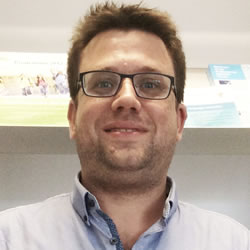
Prof. Dr. Lukas Bleichenbacher is a Lecturer in English and Foreign Language Didactics Sek I, Co-Director and Research Assistant at the Institute for Specialised Didactics Languages. Special interest in Foreign language didactics and language policy, Language-relevant competences of teachers,
Multilingualism, Interculturality and Identity. Since 2017 he is the Co-Head and Head of Research and Development at the Institute for Didactics Languages
Action research communities for language teachers
Presenter: Christine Lechner
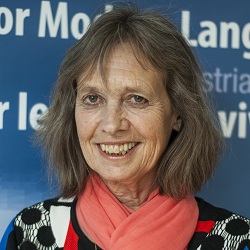
Dr. Christine Lechner, B.A. Hons, her school and teaching experience includes:
Since 2014 Coordinator PFL Course, English
Since 2007 Professor at the Pädagogische Hochschule Tirol in training and further education (Team English Training, Bista Processing and Implementation, WS 2011-12 Reed VS)
1994 - 2007 Professor at the Pedagogical Academy of the Federation in Tyrol (1994-96)
(co-use) practical support at Tyrolean secondary schools
Since 2005 moderator of Tiroler Fremdsprachenwettbewerb, BMS English
Since 2004 proseminar at the Leopold-Franzens-University; Since 2007 at IMoF, since 2012 at SoE
Plurilingual and intercultural competences: descriptors and teaching materials (FREPA)
Presenter: Michel Candelier
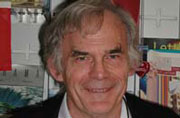
Michel Candelier is Professor Emeritus at the University of Le Mans (France) where he taught courses concerning the didactics of plurilingualism and language policies. He has coordinated a number of European projects, mainly at the ECML, on Language awareness / Awakening to languages (Evlang) and Pluralistic approaches to languages and cultures (CARAP). He is now investigating the factors at work in the dissemination of these approaches as well as didactic approaches to implementing a comprehensive view of language education.
Presenter: Anna Schröder-Sura
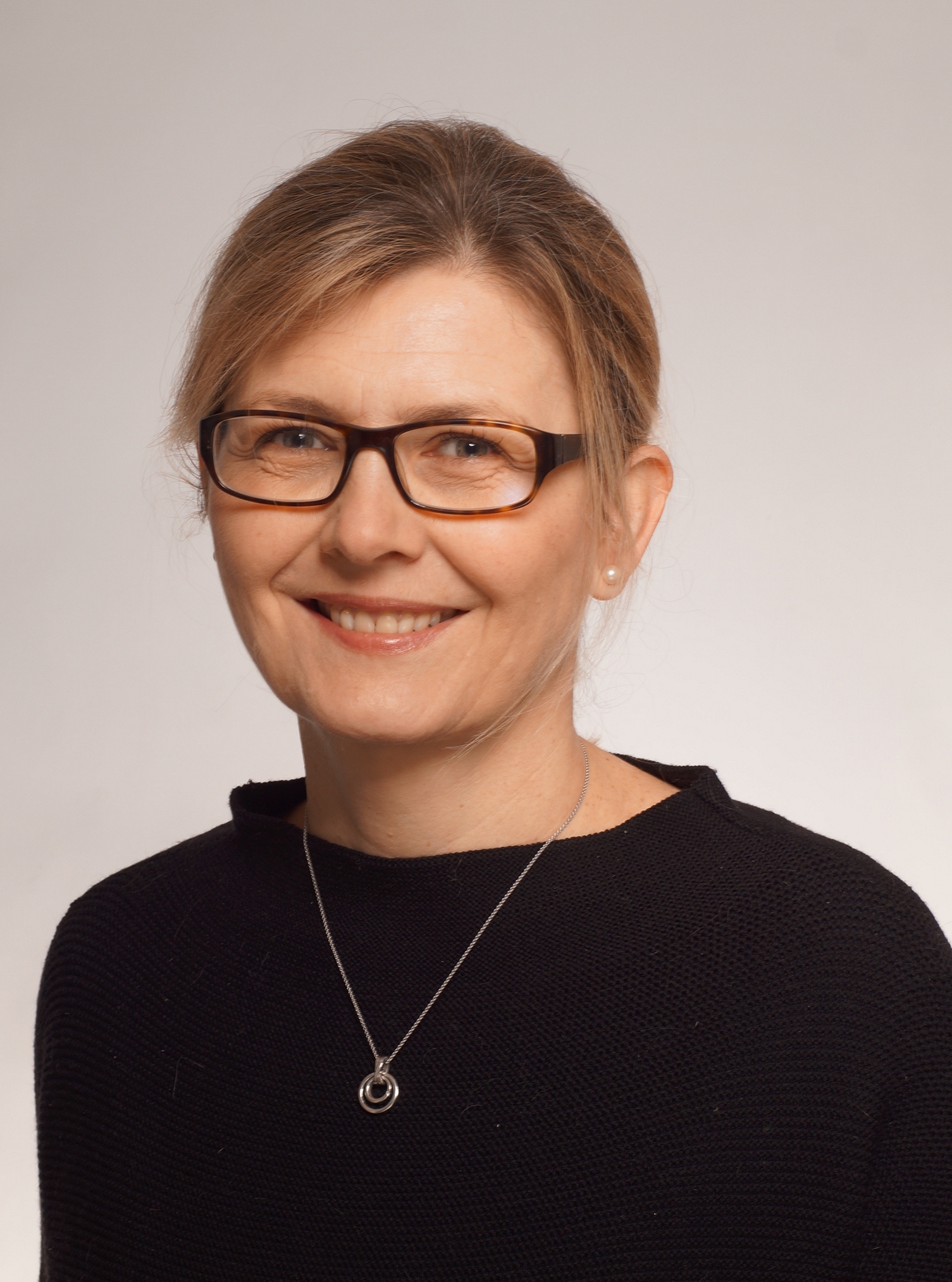
Anna Schröder-Sura is lecturer and teacher trainer in the Didactics of Romance Languages at the University of Rostock (Rostock, Germany). Her research interests lie in plurilingual education, teacher competences, the promotion of language learning competence and language policies. She has participated in several research and training projects, in particular in the development of the Framework for Pluralistic Approaches to Languages and Cultures (FREPA/CARAP).
Electronic European Language Portfolio: Working with an electronic European Language Portfolio for better language learning
Presenter: Bärbel Kühn

Dr Bärbel Kühn, studied German language, German Literature and Political Science in Germany. 1999-2015 managing director of the language centre of the four public universities of the federal state of Bremen (Germany). Since 2009 chair of Sprachenrat Bremen, the Council of Languages of the federal state of Bremen, which has developed EPOS, the digital version of the European Language Portfolio (ELP). Since 2012 coordinator of the Training and consultancy activity (TaC) for member states of the European Centre
of Modern Languages of the Council of Europe in Graz: Supporting local networks in using an electronic European Language Portfolio. Since March 2017 senior researcher at the Darmstadt University of Applied Sciences. Since April 2019 lecturer for German literature at the University of Bremen and the Goethe-University of Frankfurt/M. March 2011 National ordre of France: Chevalier dans l'Ordre des Palmes académique.
Using the European Portfolio for Student Teachers of Languages (EPOSTL)
Presenter: David Newby

David Newby is a former associate professor of linguistics and language teaching methodology and research at the University of Graz, Austria. He has coordinated a number of ECML projects and is co-author of the European Portfolio for Student Teachers of Languages (EPOSTL). He is currently a consultant to the ECML.
Topic: New media; quality assurance; language for work
Digital literacy for the teaching and learning of languages
Presenter: Christian Ollivier
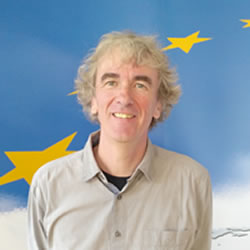
Research Themes
Approaches in language didactics
Didactics of plurilingualism → intercomprehension → epistemology, description and evaluation of intercomprehension competences
Digital and language teaching and learning → didactic approaches, tasks
ICT (digital literacy/citizenship) and language teaching and learning
CEFR-QualiMatrix: A quality assurance matrix for CEFR use
Presenter: Brian North
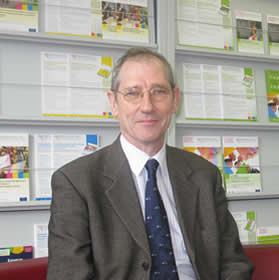
Brian North has been a teacher, project coordinator, course director, development manager and researcher who has collaborated extensively with the Council of Europe. In his PhD thesis (The Development of a Common Framework Scale of Language Proficiency 2000: Peter Lang) he developed the levels and descriptors for the CEFR. He then co-authored the CEFR, the prototype European Language Portfolio, the Manual for relating examinations to the CEFR and Eaquals’ CEFR Core Inventories for English and French. He coordinated the 2013–18 Council of Europe project that produced the CEFR Companion Volume. His recent publications include: The CEFR in Practice (2014: Cambridge); Language Course Planning (with M. Angelova, E. Jarocsz & R. Rossner: 2018: Oxford), and The Action-oriented Approach (with E. Piccardo, 2019: Multilingual Matters).
Language for work - Tools for professional development
Presenter: Matilde Grünhage-Monetti
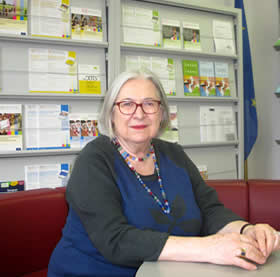
Matilde Grünhage-Monetti is a former researcher in adult and continuing education at the German Institute for Adult Education, Bonn, Germany. She has coordinated three ECML projects on work-related second language development and is author of various publications on the issue.
She is currently an independent trainer and consultant.
Online technology Use of ICT in support of language teaching and learning
Presenter: Pauline Ernest
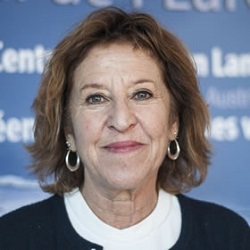
Pauline Ernest is a former director of the Language Programme and coordinator of English language and literature courses at the Centre for Modern Languages at the Open University of Catalunya. She has participated in the ECML projects DOTS – Developing online teaching skills / MoreDOTS – Using open resources to develop online teaching skills and is currently a coordinator of the ECML’s ICT-REV Training and consultancy activity Use of ICT in support of language teaching and learning. Her research interests include web-based language learning and teaching, and the training of language teachers in the use of ICT in their professional practice.
Online technology Use of ICT in support of language teaching and learning
Presenter: Joseph Hopkins
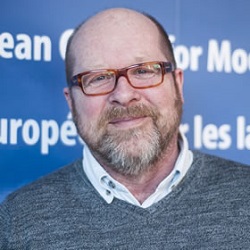
Joseph Hopkins is the Director of the Centre for Modern Languages at the Universitat Oberta de Catalunya. He is also a coordinator of the ECML Training and Consultancy activity
ICT-REV – Use of ICT in support of language teaching and learning, aimed at training language teachers in how to successfully implement technology in their teaching. His main areas of interest are web-based language teaching and learning, language teaching management, ICT training for language teachers, and computer-mediated communication.
Topic: Plurilingual, intercultural and inclusive education
Learning environments where modern languages flourish
Presenter: Jonas Erin

Jonas Erin, General Inspector at the Ministère de l'Éducation nationale in France is the project coordinator of the ECML project Learning environments where modern languages flourish.
Inspiring language learning in the early years Why it matters and what it looks like for children age 3-12
Presenter: Flore Schank
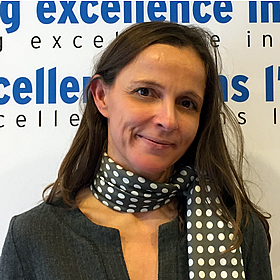
Flore Schank works in the department of primary education (Service de l'Enseignement fondamental) at the Ministry of Education, Children and Youth in Luxembourg. Here she coordinates i.a. national and European projects in the field of language education, e.g. the conception and implementation of plurilingual and intercultural education in the pre-primary sector, the ECML project ILLEY (Inspiring language learning in the early years) and the INTERREG V project Sesam ‘Gr (keys for the future of young people in the Greater Region). Her current work also focusses on developing a common understanding of language learning across borders by identifying ideas and principles that are shared by actors from different contexts. Flore Schank will coordinate a project in the next ECML programme (PALING: Language pathways of young children – make early language learning visible). She also works as a teacher trainer in the national and European context.
Sign languages and the Common European Framework of Reference for Languages (PRO-Sign)
Presenter: Christian Rathmann
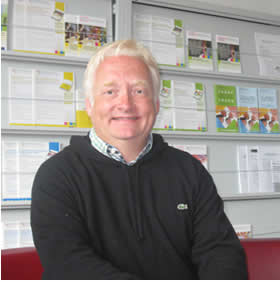
Christian Rathmann is a German linguist and head of the Department of Deaf Studies and Sign Language Interpreting at the Institute for Rehabilitation Sciences at Humboldt University Berlin. Previously he held a chair at the Department of Language, Literature and Media Studies I at the University of Hamburg. He is the first deaf professor in Germany and the successor of the founder of the Institute for German Sign Language, Siegmund Prillwitz. (wikipedia)
Presenter: Lorraine Leeson
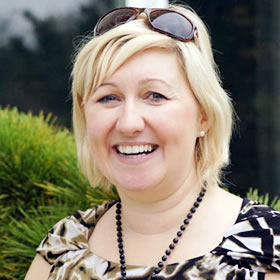
Lorraine Leeson is professor in Deaf Studies at Trinity College Dublin. She was coordinator of the ECML’s PRO-Sign 1 project, Sign languages and the Common European Framework of Reference for Languages – Descriptors and approaches to assessment, and a member of the expert team on the PRO-Sign 2 project, Promoting excellence in sign language instruction.
Quality education in Romani for Europe
Presenter: David Little

David Little retired in 2008 as Associate Professor of Applied Linguistics and Head of the School of Linguistic, Speech and Communication Sciences at Trinity College Dublin. He has been actively involved in the Council of Europe’s work on language education since the 1980s, with a particular focus on the European Language Portfolio, the linguistic integration of adult migrants, and the teaching/learning of Romani. Between 2004 and 2011 he coordinated two ECML projects on the ELP, and he currently coordinates the ECML’s QualiRom Training and consultancy.